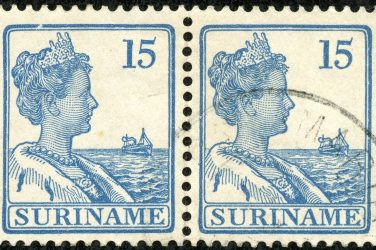E&M contributor Paulina Kintzinger reflects back on her experiences as an intern at the German embassy in Washington – where she faced the political circus of the United States, dealt with stereotypes about Germany, and realised what true professionalism means.
Ten months ago, I was in Washington DC, doing my internship at the German embassy and it still feels like it was yesterday. It feels like yesterday because my world has been paused ever since I returned home to Germany and the global pandemic has changed a whole lot. But it also feels like yesterday because I made unique experiences there, experiences that shaped my view of how I see many things in international happenings.
When I applied to the German Foreign Ministry for an internship in one of their embassies around the world, the United States of America wasn’t quite my first choice. I grew up in the post-cold-war generation – while our parents dreamed of America and Levis jeans, we did not see Americans as idols and rather went off traveling to Asia or South America. Naturally, the USA has always played a role in our lives, as a global superpower and influential factor in our culture. But that’s also why it always felt so close. I perceived America to be similar to Europe, just a more extreme version in many fields.
In the internship program of the German Foreign Ministry, the embassies choose their interns out of a pool of all applicants but as a candidate, you can only accept or refuse the offer. So, when the acceptance of the embassy in Washington DC arrived in my mail I didn’t hesitate long, regardless of my doubts about the USA. Next to Moscow, Washington is home to Germany’s largest foreign representative office with around 110 employees. It’s almost like a small ministry in its way. Therefore, I expected to gain a variety of insights into such a great house. And indeed, the German diplomats there cover every aspect of American culture, as well as German-American-relations. Whether culture, economic relations, language exchanges, defense, or public relations, the embassy reflects all the pillars of society. For each of these topics and many more, there is at least one expert. For example, there is one who is dedicated exclusively to agricultural policy in the US and its significance for Germany.
I have come to realize that contrary to the common perception that the current president has ruined the political culture in the US, a special kind of rhetoric and etiquette has always prevailed in political life there.
In the course of my work, I have been allowed to draft speeches for the ambassador Emily Haber, often on Jewish holidays and therefore always with reference to the national socialist time of Germany and the holocaust. This task was one of the most challenging I ever had during my whole work experience as it really comes down to how Germany represents its responsibility regarding the past and role in the present in this world. My tasks also included the conception of Campus Weeks 2020, in which Germany, represented by the embassy, presents itself to over 200 universities in America. The idea is to introduce young people, especially in the heartland, to Germany and Europe with its history and culture as well as economy and job opportunities. For this I proposed various initiatives about diversity in Germany, relaxing the image of the German in leather pants and wheat beer – an image that represents Germany in many places in America.
But even more intense than my daily tasks was the experience of getting to know the American political culture. I have come to realise that contrary to the common perception that the current president has ruined the political culture in the US, a special kind of rhetoric and etiquette has always prevailed in political life there. While German politicians sometimes couldn’t be more careful in their statements, even diplomats in America address other nations as “Friends” and “Enemies” without hesitation. The fundamentally different political culture became visible in virtually every meeting with American diplomats through the way they talk about policies and other countries. The same was true of my findings outside of political life. Thanks to dedicated supervisors and time for education and visits to institutions outside of the embassy, it became clearer and clearer to me within the two months how historically grown and explainable the differences between the US and Europe.
no one has painted a too rosy picture for me of life as a German diplomat. All ties to friends, partners, and family back in Germany suffer from this lifestyle.
Regarding my colleagues at the embassy, my experience was much more positive. I have met people at the embassy who, because of their passion for international politics, travel around the world with their families and live in a different place every four years. You can see the sparkle behind their eyes when they talk about earlier stations in their career, of which many were places much more foreign to their own cultural identity than the United States.
At the same time, no one has painted a too rosy picture for me of life as a German diplomat. All ties to friends, partners, and family back in Germany suffer from this lifestyle. Furthermore, the foreign office is also a bubble – just as many large companies, it is a hierarchically dominated entity, there is gossip, and there is a lot of importance placed on “who is who”.
All in all, have the feeling that both sides, the good and the bad of being a German diplomat, were honestly presented to me during the internship and I am grateful for that. I can look back at this unique experience – something that will shape my decisions and maybe even career path in the future.
Reflection of Gray Mosque on Water by Kendall Hoopes (Pexels)





